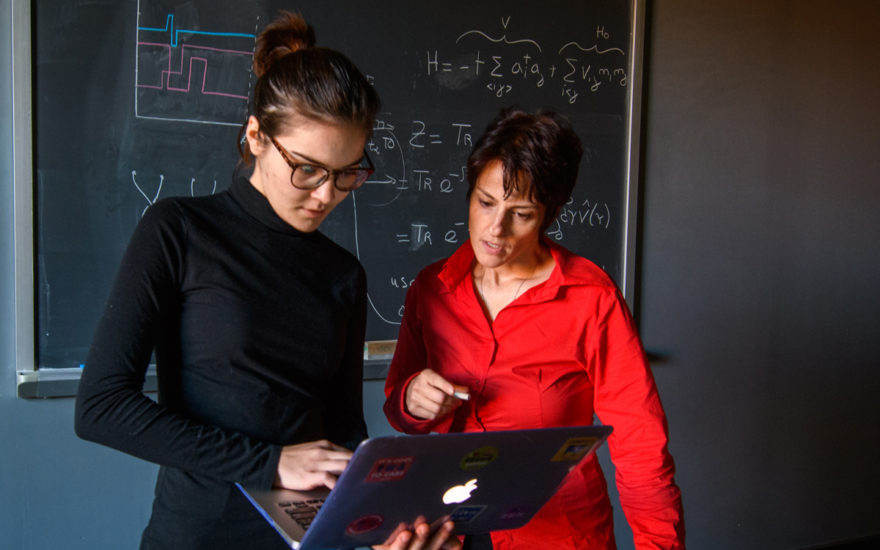PHYS 243
POPTechnology of Renewable Energy
Get hands on with Clark’s microgrid by mounting solar panels, building wind turbines, and connecting electrical systems while learning about renewable energy.

Request Information
Observing nature. Discovering physics.
Through our hands-on learning approach, you’ll put your studies into motion the moment you arrive on campus. You’ll explore the fundamental laws and principles that govern our universe — from atomic theory to quantum thermodynamics.
Leading faculty members will guide your learning across three distinct tracks: comprehensive, applied, or general physics. You’ll merge your classroom knowledge with lab experiences, and collaborate with professors and peers on research — ranging from renewable energy to molecular lattice systems — as early as your first year.
Curriculum update
Effective fall 2025, Clark will recognize this course of study by awarding a Bachelor of Science in Physics. Students graduating before then will be awarded a Bachelor of Arts. Contact your academic advisor for details.
Physics
The physics major, which requires a minimum of 18 courses to complete, can be customized to meet your interests. We offer three tracks to choose from, depending on your career goals: the comprehensive physics track, applied physics track, and general physics track. In addition to core physics courses, you can take specialized courses in pre-professional physics, biological physics, fluid dynamics, information theory, the technology of renewable energy, electronics, and computational physics, and explore related fields such as environmental studies, management, government, law, medicine, and teaching. You can also pursue the major as part of the 3/2 engineering program with Columbia University. If you’re considering a career teaching physics at the high school level, we encourage you to check out the Noyce Scholarship program.
Our physics program is aimed at helping you develop both an understanding of physical phenomena and your problem-solving and analytical-thinking skills. Throughout the physics major (or minor), you will spend a great deal of time thinking deeply about physics and working in the laboratory to discover how physical systems work. Starting with the introductory physics sequence, all our courses prepare you to apply your knowledge of physics and mathematics to study real-world and unsolved problems. Near the end of your junior year, or earlier, you can choose a topic for your capstone project.
Building your foundation
The Clark Core allows students to take courses across diverse disciplines, helping them develop critical thinking skills and respect for other cultures and perspectives. You’ll connect classroom learning with action through world and workplace experiences.
Notifications